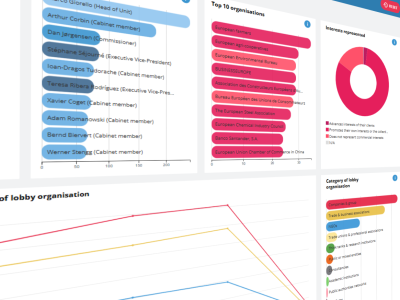On November 6 at the European Parliament as part of the Financial Transparency Coalition (FTC), we organized an event on the Capital Requirements Directive IV (CRDIV) that obliges credit institutions and investment firms to disclose key financial information on a country-by-country basis.
Since the 2008 global financial crisis all parts of society have been asked, in different ways, to respond to the new challenges. The need to prevent such a financial, economic and social catastrophe from happening again requires national and regional regulators to come together to make sure that, firstly, financial institutions are resilient enough to withstand potential future crises and, secondly, that they be more transparent and accountable to society.
The Capital Requirements Directive IV (CRDIV) responds to both these objectives, and introduces for credit institutions and investment firms the obligation – as of 1 January 2015 – to disclose the following information for every country where they operate: institution’s name, country, tax on profit or loss, profit or loss before tax, turnover, nature of activities and geographical location, number of employees and public subsidies received.
The Financial Transparency Coalition (FTC) has been making the case for an improved corporate disclosure regime to help combat corruption and tax evasion, documenting the poor level of corporate transparency in a series of reports. With calls for a measurable and binding commitment against tax evasion and tax avoidance in the EU, and following the OECD proposals to prevent profit-shifting and base erosion, the FTC thought it timely to hold an event to discuss how to maximize the opportunities created by country by country reporting for a more accountable and transparent financial sector.
CRD IV is clear on what financial institutions should report, but it leaves some aspects of the disclosure requirements open. Therefore, unless member states provide more guidance, the details of implementation will be left to individual financial institutions. This “how”gap runs the risk of having a fragmented methodology that would undermine the spirit of the legislation.
This event brought together civil society representatives, academics, investors, members of the accounting profession, MEPs and European Commission officials with the view to establishing an agreement on the benefits of disclosure, sharing best practices and coordinating next steps.
Main conclusions from the event included:
- Corporate transparency measures such as CBCR require a level-playing field that can be provided by legislation.
- There would be a value in extending mandatory CBCR disclosures to other sectors of the economy in the near future. In doing so, the EU could become a global standard setter for a more transparent and accountable economy.
- CBCR would provide valuable information to investors and other market actors interested in financially sustainable corporate performance.
- The limited examples available suggest there is no evidence of CBCR having a negative consequence on financial performance.
- The OECD standard could become a template for public disclosure of CBCR data. However there is a need for further, more specialised discussion on a common reporting standard. This could be accomplished by a multi-stakeholder platform bringing industry, accounting, academic and civil society expertise together, or the formation of a European Commission expert group.




